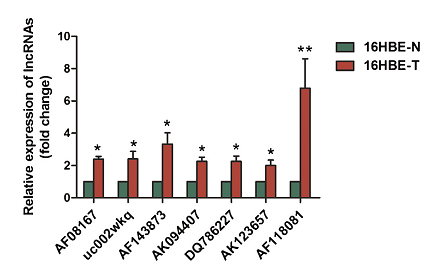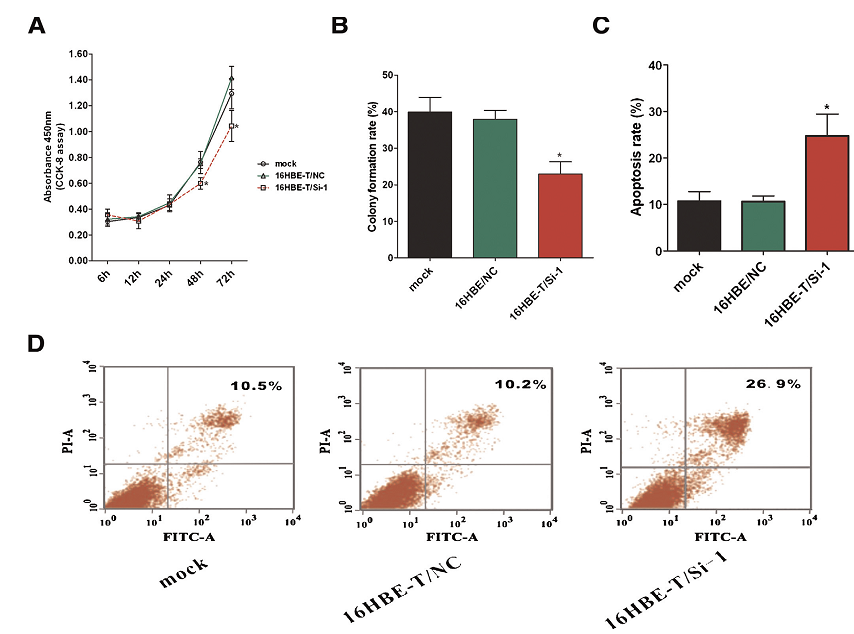Research team of SKLRD led by Jiang Yiguo discovers a new carcinogene lncRNA AF118081
2015-06-18950Lung cancer is one of the malignant tumors with the fastest growth of morbidity and death rate and the greatest threat to human’s health and life. Previous researches often pay attention to the role of encoding gene in the formation of lung cancer. Yet 90% of human’s genomes cannot encode protein. The corresponding mRNA is referred to as non-coding RNA. The long non-coding RNA (lncRNA) is a type of non-coding RNA with a length of over 200nt, which has always been considered as Junk RNA without any biological functions. The research team of State Key Laboratory of Respiratory Disease led by Jiang Yiguo used anti-benzo[a]pyrene-trans-7,8-diol-9,10-epoxide (anti-BPDE) for the research of lung cancer and found that lncRNA AF118081 is an inhibiting factor to prevent anti-BPDE from causing cancer. The research indicates that lncRNA AF118081 may be used as early biological marker for the occurrence of lung cancer.

Through a comparative analysis of the lncRNA expression profile of the malignant transformed cell 16HBE-T induced by anti-BPDE and the normal cell strain 16HBE-N and the expression of lncRNA of 35 pairs of lung cancer tissues and normal reference group from Guangzhou Military Region Hospital, it is found that seven kinds of lncRNA show a distinctive rise than the cells of reference group, of which AF118081 has witnessed a significant rise. According to the cell proliferation experiment with gene AF118081 removed, the proliferation capacity of malignant transformed cells has declined, the cell cloning rate has reduced significantly and the apoptosis rate has risen obviously. The aforesaid results have been proven by the results of cell scratch test and the malignant invasion test of cells.

















